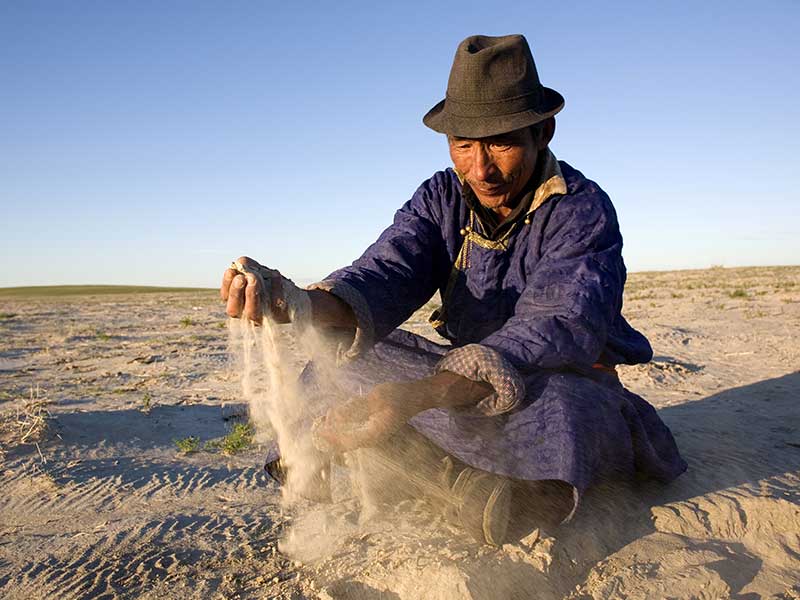Mongolia bans grain exports as rising temperatures threaten crop production
Mongolian authorities have suspended all grain exports as temperatures climb to their highest levels for 56 years

Soaring temperatures have left almost a third of Mongolia's farmland suffering from drought
Agricultural officials in Mongolia have suspended all grain exports in anticipation of a dire shortfall in the autumn harvest, after scorching June temperatures left almost a third of the country’s farmland suffering from severe drought.
In June, Mongolia’s temperatures climbed to their highest level in 56 years, threatening crop production and potentially triggering a devastating ripple effect on the country’s livestock industry. Despite its blistering summer months, Mongolia suffers extremely harsh winter conditions, with freezing temperatures and heavy snowfall – known locally as the “dzud” – responsible for killing off large portions of the country’s livestock.
A good harvest, therefore, is essential for Mongolian herders to stockpile sufficient stores of grain to keep their animals alive during the winter months. With nearly a third of the population made up of herders, and much of the country’s food supply dependent on their produce, the autumn harvest is crucial to the Mongolian economy.
With nearly a third of the population made up of herders, the autumn harvest is crucial to the Mongolian economy
Mongolia is already struggling financially as a result of the global decline in demand for its primary export materials: copper and coal. Earlier this year, the IMF was forced to agree a $5.5bn bailout for the country as it struggled to meet debt repayment deadlines.
Mongolia had been seeking to expand its agricultural exports in order to protect against fluctuations in the demand for natural resources. However, rising desertification rates have increasingly rendered harvests less reliable, posing a distinct threat to the country’s culture of nomadic herding farmers.
The problems facing Mongolia provide a stark reminder that, despite climate change causing the entire planet to heat, the effects of rising temperatures are not shared evenly. Temperatures in Mongolia have risen by two degrees Celsius over the past 70 years – three times the global average – further demonstrating the worst consequences of climate change are often felt in countries with extreme seasons and those already least equipped to deal with the effects.













